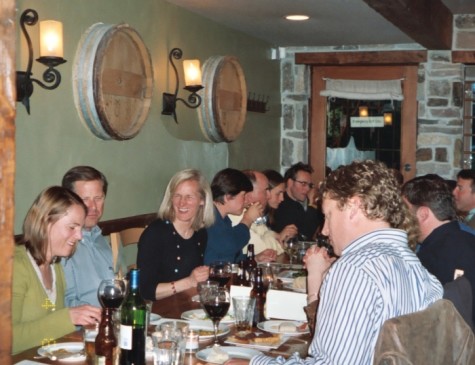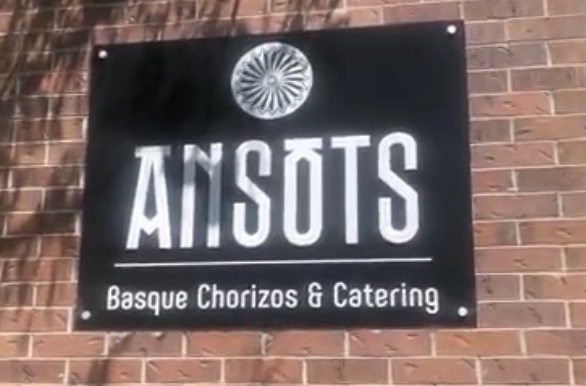My Adventure Learning Basque at a Basque Boarding School
November 10, 2022
I just spent an amazing month at the Basque immersion school Maizpide, in the small town of Lazkao in Gipuzkoa, Spain. Learning Euskara (the Basque language) had been a dream of mine since I was young and I heard the language spoken by my father, who grew up in the French-Basque town of Aldude.
Maizpide Boarding School
For the past two years, I have been learning Basque via online classes through Boise’s Basque Museum. Despite my dedication, I realized that I would not become fluent in the language unless I took more serious measures. I decided to take part in some sort of immersion experience like a barnetegi (Basque for boarding school). As I considered such a trip, I heard of several Basque-Americans who attended Maizpide to learn Basque, so I did some research and decided it would be a good place for me as well. I later learned it was the oldest and the best of the Basque Country barnetegis. The price per monthly session varies a bit, but is very reasonable, due to subsidies from the Basque government. I paid approximately $650 for the four weeks of room, board and classes.
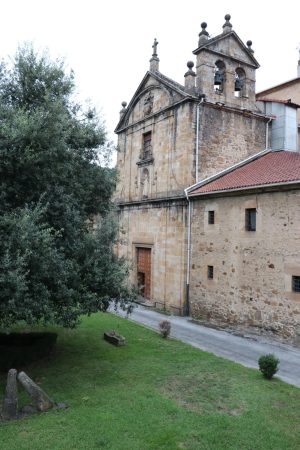
It was a quick train ride from Donosti (San Sebastian), but it was quite a trek from my cousin’s house in Kanbo (Cambo-les-Bains) in France. I had to take a bus, a train and another bus. Because we had to be at school at 8:30 a.m. on Monday, Oct. 3, for the first day of classes, I decided to travel to Lazkao the evening before. I spent the night in a monastery of nuns, the Hospederia Santa Ana, next door to the school. I had been told by an administrator at Maizpide that the sisters rented rooms very inexpensively. I rang the bell at the big wooden church door and was pleased to get a key to a small, very clean room with a private bath for just 25 Euros. I didn’t have to stay there again, as one of my classmates would soon offer to drive me back and forth to Iparralde (the French side of the Basque Country) on the weekends.
The first morning was bustling with excitement, as many students arrived with their suitcases. They started speaking Euskara to us right from the start. I was directed to my classroom in simple terms “bat, bi, lau” – 124.
In the Classroom
I speak Spanish fluently, which was very helpful, as in the classroom, teachers did offer some explanations in Spanish. However, I think non-Spanish speakers can still do fine there as the materials are all bilingual and can be requested in Euskara and French or Euskara and English. In addition, the school goes to great lengths to promote the use of Euskara consistently, so teachers speak in the Basque language most of the time, using gestures, pictures, videos and writing to explain complex concepts. It might be a bit more difficult for an English speaker, but there are always students who speak English, and the students tend to help each other a lot. Throughout the course of the day, our teachers Isabel, Gurutxe and Ainhoa led us through vocabulary and grammar exercises from worksheets developed by Maizpide.
Students are encouraged to speak only in Euskara while they are at Maizpide, both inside and outside the classroom. Those of us in the beginner class did not have the language skills to speak it socially, so we huddled together in the dining room and spoke Spanish or French together, while everyone around us spoke in Euskara. When addressed in Euskara, I made my feeble attempts to communicate in the language, although I was rarely sure I understood exactly what the speaker was saying to me. But I blundered on, knowing that constant practice is a strong contributing factor to learning it.
While I planned my Euskara-learning adventure, I knew some unexpected situations were likely to arise. Two developments were surprising, yet very welcome. The first was the friends I made.
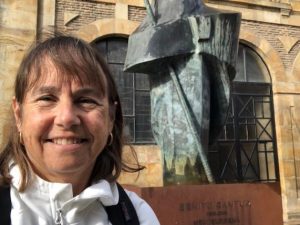
Quick Friends
I was in the beginner class with nine other students. We quickly became a tight-knit group. We spent 6 1/2 hours a day in class together and ate most of our meals together as well. We spent a lot of class time laughing at our mistakes and it seemed our teachers, Ainhoa, Gurutxe and Isabel, enjoyed our group as well. Our Euskara was minimal, so we spoke to each other in Spanish, French and English. On the very first day, one of my classmates, Conchi, learned I had arrived from Iparralde and immediately offered to give me a ride back on Friday. Conchi turned out to be my next door neighbor in the dorm rooms and we became fast friends, often walking to class or the dining room together.
We were such an eclectic group of people – we had an 18-year-old immigrant student from Nicaragua, a grandmother who owned a butcher shop in the French-Basque town of Anglet, an engineer who worked on an oil rig in Norway, the spokesperson for the Artisans de la Paix (Artisans of Peace) , a social worker, a chemistry teacher from Valencia, an Argentinean journalist who lives in Berlin, a young robotics engineer from Mexico and a Catholic missionary from India and me, a Basque-American writer from Los Angeles. Yet we all aspired to the same goal, which had brought us all to this place: to learn Euskara.
We created a group chat on the second day and shared lots of Euskera-related jokes and group photos. Even today, more than a week after our session ended and most of us have left Maizpide, the group texts continue. We are forever bonded through this goal of learning Euskara.
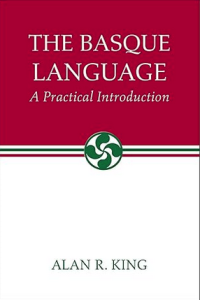
speakers learning Euskera
MORE EK STORIES ABOUT LEARNING EUSKARA
A Basque-American’s Journey to Learn Euskara
Basque Music Helps Basque American Adapt to Life in Euskal Herria
Why the Day of Euskara is So Important
Resources for Learning Euskara
Living at the School
I enjoyed living at the school. The dorm rooms were clean and simple and reminded me of my college days. We were served fresh, healthy meals that included meat or fish and salad every day, plus delicious soups and stews. For the price we paid, I was quite amazed at the variety and quantity of food we were served.
While I mostly hung out with the other beginner students from my class, over the course of the month, I met other students through school activities, like Basque film evenings and a Basque dance class that met twice a week. My schoolmates seemed to be a friendly bunch and numerous times every day I heard “kaixo” (hello), “egun on” (good morning) and “on egin” (enjoy your meal).
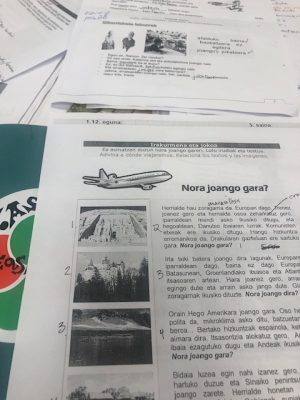
Most of the students live nearby and go home at the end of each day. But a few of us, who came from further away, stayed at the school Monday through Friday. On Friday, everyone goes home for the weekend. So Thursday evening was the de rigueur Pintxo Pote outing. We would go to local “tabernak” (bars) in town and have a drink and a pintxo (a small appetizer on a slice of bread). After a glass or two of wine or beer, our tongues loosened up and our attempts to speak in Euskara seemed to come easier.
Lazkao
While Lazkao is off the beaten track, it’s a great location for the school. The town is located in the Goierri or Basque highlands, a region where Euskara is commonly spoken. I heard children speaking Euskara as they walked to school and adults conversing in Euskara on the street. At local bars and cafes, after my initial “kaixo,” I was typically addressed in Euskara. Knowing my numbers was definitely helpful when it came time to pay.
People of all Backgrounds Learn Basque
The second surprising discovery I made during my trip was that perhaps half of the students at Maizpide are not of Basque heritage. I expected nearly everyone would have some Basque blood, like me, and I figured that would be the main reason they were learning Euskara. I was wrong. And I was happy to be wrong, because that meant that many different kinds of people found valid reasons to learn this ancient language.
During the month of October, while I was there, at least 60 students were also studying at Maizpide. Many of the people at the school are learning Euskara for work-related reasons. Being bilingual in Euskara in the Euskadi region gives people a professional advantage. Euskara is an official language (in addition to Spanish) in the Autonomous Basque Community or Euskadi (the provinces of Gipuzkoa, Bizkaia and Alaba). So people who work in jobs in the public sector can earn more or have more job choices if they speak Euskara. As a result, they come to Maizpide very focused on learning it well. They are required to take exams to qualify for the next level and to obtain certificates that they can use for their jobs.
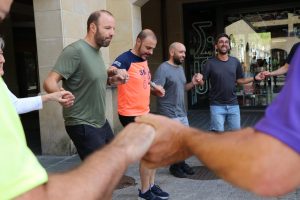
I asked many of them why they were learning Euskara. And while many admitted it was for work, they always made a point to add that they were learning it because they wanted to. In addition, there were some students from other places where Euskara is not required, such as a British woman who spent some of her youth in the Basque Country and several Basques from Iparralde (the French side of the Basque Country). Some were there for love – their partners were Basque and they wanted to speak the language with their friends and family. Others had children or grandchildren who were learning the language at school and they wanted to speak Euskara with them or support them in their school work.
One month was obviously not enough time to become fluent. Maizpide offers classes year-round. Four of my nine classmates plan to stay at Maizpide until June, and I’m sure they will achieve that goal. The rest of us from the beginner class hope to continue online. (Maizpide offers online classes.) And hopefully I will come back again soon to Maizpide to continue my language learning. It was such a stimulating, challenging and fun adventure.

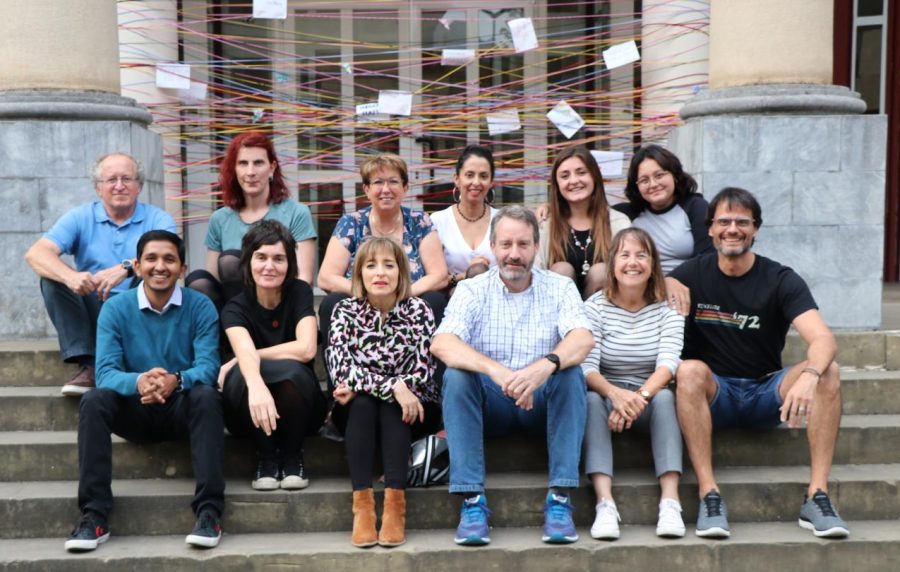
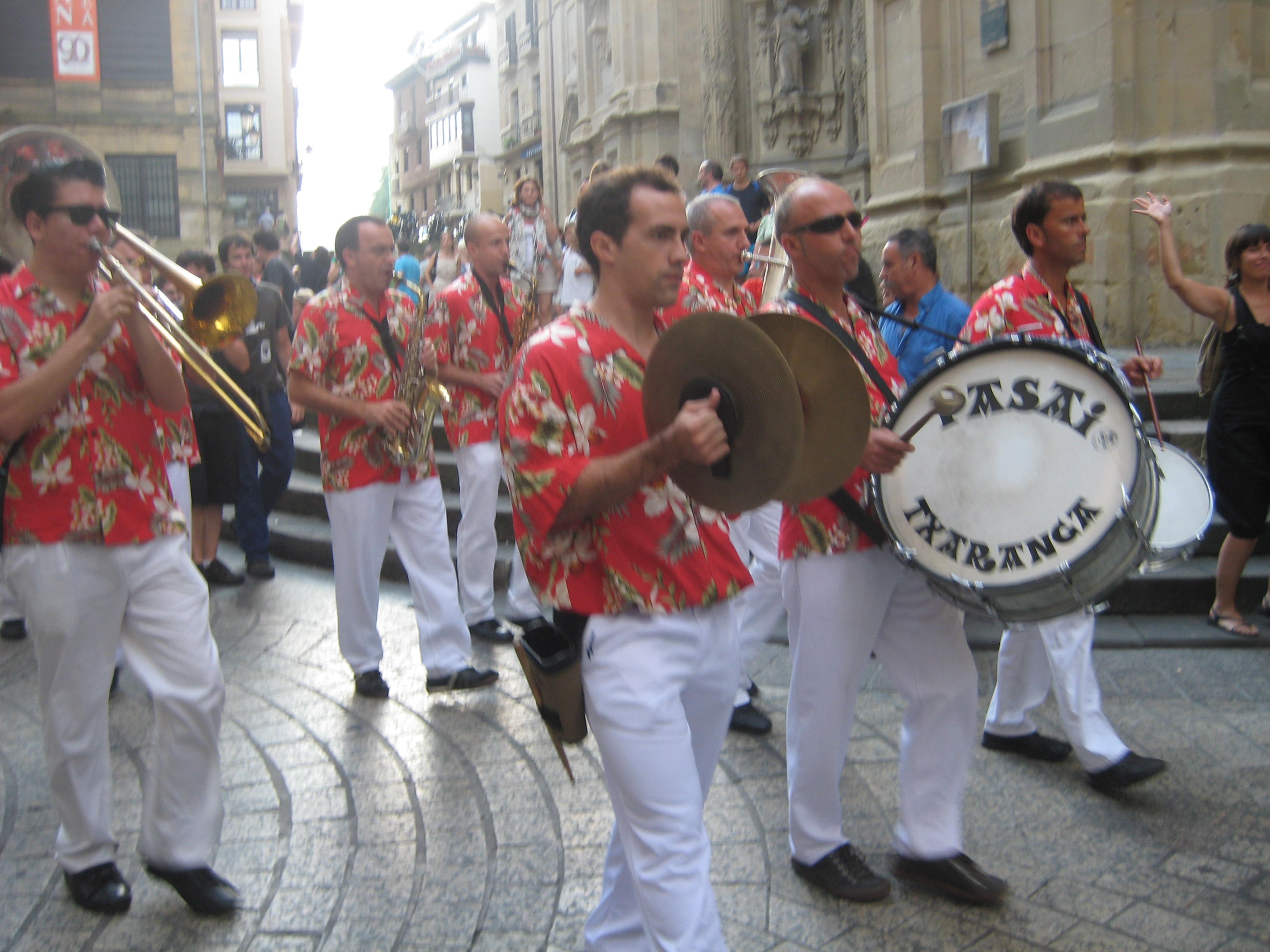

 Donate
Donate
